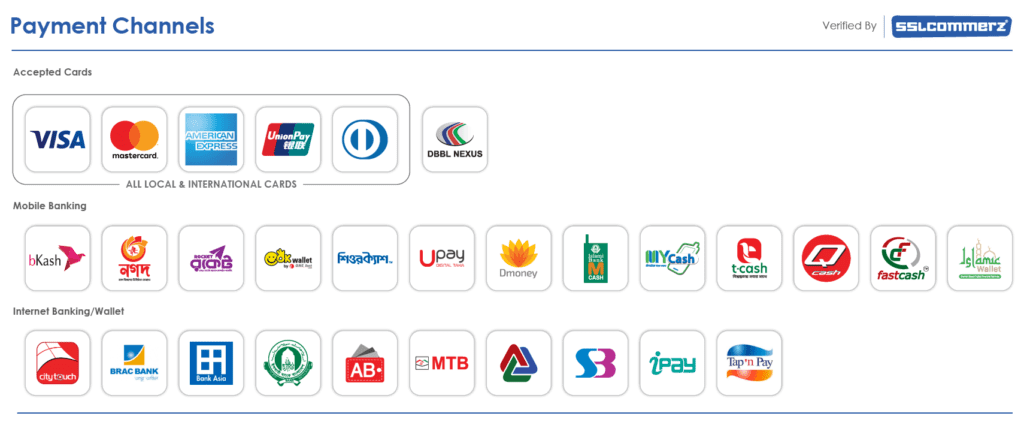The Master of Science/Post Graduate Diploma in Early Childhood Development (ECD) is a pioneering programme, the first of its kind in Bangladesh. The programme offers a detailed pedagogy on Early Childhood Development (ECD), the formation & growth during the early years. The course will enhance the learning and knowledge of all who are interested in working in the field of ECD from both private and public sector. The programme is designed with a unique combination of classroom studies and field research which caters to those working on early childhood development to further their understanding of major issues. These issues encompass play, parenting, school readiness, program design and advocacy. The programme is led by a team of highly qualified faculty members comprising of researchers, curriculum developers, ECD specialists, programme specialists and resource professionals of national and global repute.
| Course No./Credit | Course Title | PGD | MSc. |
|---|---|---|---|
| ECD 521/3-credit | FOUNDATION OF EARLY CHILDHOOD DEVELOPMENT | √ | √ |
| ECD 523/3-credit | PLAY AND CREATIVITY | √ | √ |
| ECD 524/3-credit | SCHOOL READINESS | √ | √ |
| ECD 525/3-credit | WORKING WITH FAMILIES | √ | √ |
| ECD 520/3-credit | PROGRAM DESIGN AND AN INTRODUCTION TO RESEARCH | √ | √ |
| ECD 526/3-credit | CONTEMPORARY ISSUES IN CHILD DEVELOPMENT | √ | √ |
| ECD 527/3-credit | INDIVIDUALIZED TEACHING AND LEARNING | √ | √ |
| ECD 528/3-credit | POLICY DEVELOPMENT AND ADVOCACY | √ | √ |
| ECD 529/3-credit | RESEARCH METHODOLOGY | √ | √ |
| ECD 531/3-credit | ADVANCED SEMINAR | × | √ |
| ECD 532/6-credit | DISSERTATION | × | √ |
| Total credits to be completed | 27 | 36 |
Continuous, formative assessment is one of the unique features of this programme. Different assessment tasks will be assigned to the students throughout the course rather than one exam at the end of each course. The main objective of assessments is to help students learn and improve their work or performance.
The Institute strongly prohibits plagiarism and has formal rules and mechanisms for dealing with such practices. Some of the tasks that will be used as teaching-learning activities, as well as for assessment and grading are: presentations, group work, case studies, class participation, open-book exams, assignments, role plays, journal writing, debates, report writing, and guided tasks.
Alternative assessments, including self and peer assessments, will also be used. The specific assessment tasks, assessment criteria, and the last date of submission will be declared by the course faculty at the beginning of the course. Grading will follow predetermined criteria that are transparent and agreed upon, and in line with BRAC University grading policy. The BRAC University grading structure is given below.
| Marks | Letter Grading | CGPA | Remarks |
|---|---|---|---|
| 97 – ≤ 100 | A+ | 4.0 | Excellent |
| 90 – < 97 | A | 4.0 | |
| 85 – <90 | A- | 3.7 | |
| 80 – <85 | B+ | 3.3 | |
| 75 – <80 | B | 3.0 | Good |
| 70 – <75 | B- | 2.7 | |
| 65 – <70 | C+ | 2.3 | |
| 60 – <65 | C | 2.0 | Fair |
| 57 – <60 | C- | 1.7 | |
| 55 – <57 | D+ | 1.3 | |
| 52 – <55 | D | 1.0 | Poor |
| 50 – <52 | D- | 0.7 | |
| <50 | F | 0.0 | Failure |
BracU’s customized full fledged moodle LMS
Online classes through enterprise subscription of Zoom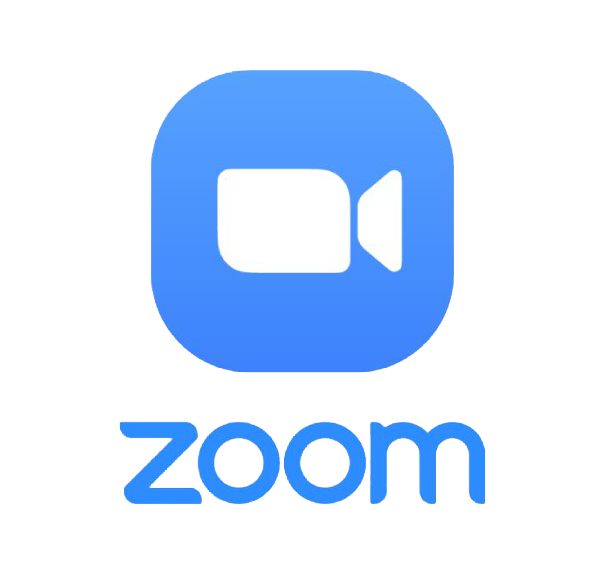
Student interaction through online tools such as Mentimeter, Socrative, Padlet, etc.

![]()
This course aims to provide students with an understanding of the major theories, the strengths and shortcomings of each, the sequence of child development and the processes that underlie it, an appreciation of the impact of context and culture in child development, the joint contribution of biology and environment in development, a sense of the interdependence of all aspects of development physical, cognitive, emotional, and social and an appreciation of the interrelatedness of theory, research and applications.
This course revolves around the deep exploration of several key questions, such as, what is the relationship among play, creativity, and artistic expression? What are the developmental purposes of play and creativity? This course is designed to enable students to develop the understanding of the significance of creative expression and play in early childhood, the major theories of play, the influence of play and creativity on all domains of child development, how differences in gender and culture impact play and creative expression, the developmental nature of play in early childhood and how adults can be responsive, the concept of high-quality play and creativity, culturally contextual play models, particularly in Bangladesh, and the assessment of indoor and outdoor environments, including materials.
The aim is to understand both the developmental continuum of reading and writing as well as the impact of individual differences and social and cultural variations on outcomes; the important role of developmental stages in the early years as well as the social and cultural context in which children live, the basic components of literacy, to assess the quality of literacy environments as well as those to assess children’s progress along the developmental continuum and how instruments can be used to plan experiences and strategies that match children’s age and experience. Environments are explored through an examination of existing program materials and case studies.
This course focuses on ways of working with young children’s primary caregivers, typically in families in support of children’s optimal growth and development. The course begins with a review of a typology of programme strategies for supporting optimal child development, with a view to locating working with families within the mix of strategies used to promote early childhood development (ECD). The potential contributions of family-involving programmes are then considered, looking at the various possible purposes and outcomes of family involving programmes.
The objectives of this course is to provide students with a basic understanding of how to design a program and how to evaluate it, to introduce students with various early childhood programs and different evaluation tools and to support students’ abilities to write clearly and persuasively, defending their ideas about how to move forward in designing a program to improve early childhood development in Bangladesh.
This course provides students with an understanding of the theory of developmental health, brain development and its interconnection with environmental influences, current thinking about genes, experiences, interaction, resilience, self- regulation, coping strategies and social and emotional competence, children’s communication and learning and current research practices.
Individualized teaching is an educational approach that takes into account what each child brings to the teaching and learning situation. The premise of this approach is that no two children enter into an educational activity in quite the same way. Children bring their own experiences, interests, attitudes, skills, personality, etc. to an activity. This course is organized in a way so that each dimension of individuality is a separate topic area. Strategies for identifying and responding to differences within each dimension are imbedded in the topic area content.
The course enables students to understand the importance of the policies and analyze current policies in place in terms of their impact on young children and their families. The purposes of the course are to gain a better understanding of ECD public policy, the role of policy in the healthy development of young children and the impact of policy on the early childhood field, and current issues emerging around the world. Students will become familiar with the factors which influence policy, international agreements, and public opinion as well as expand their skills in preparing and presenting policy analysis, evaluating policy options and understanding the relationship between research and policy.
This course introduces a wide variety of approaches to research and a range of research studies, equip students in understanding research paradigms and methods and provide knowledge and skills needed for designing and conducting research projects.
Students wishing to pursue a Master’s degree are required to participate in 3 courses consisting of 9 credits. The goal of this seminar is to develop and present a research proposal. Students who successfully complete the Diploma will be able to do Master’s thesis. The courses are ECD530: Research methods and project proposal development, ECD 531: Advanced Seminar and ECD 532: Dissertation.
Each Masters level student is assigned a dissertation supervisor. In the initial phase, under the guidance of the supervisor, students select a dissertation topic; write a proposal, present in the Advance Seminar. Next phase enables students to collect data and writing of a thesis and submit it to the thesis committee.
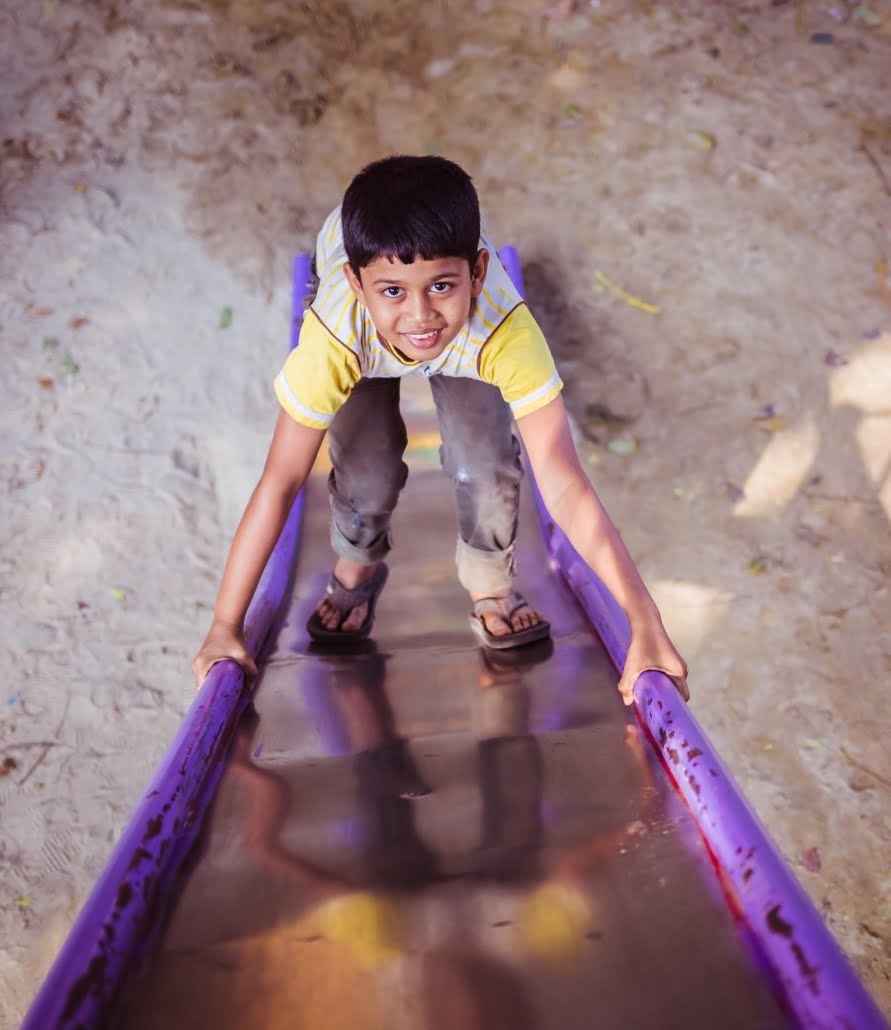
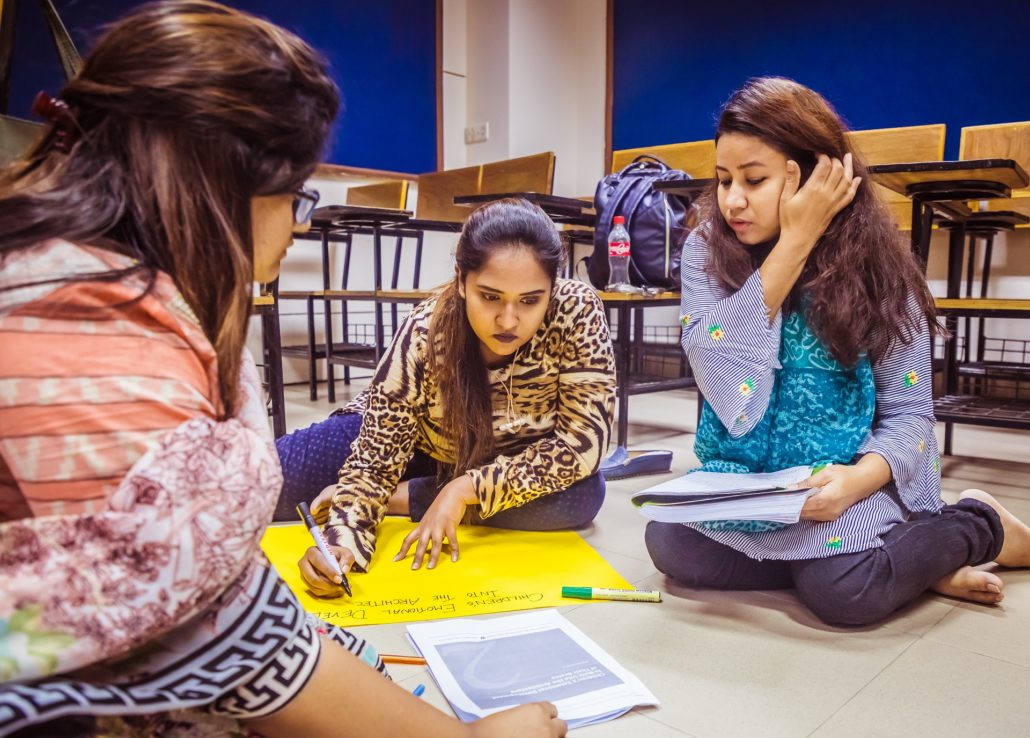
“Learning by doing” is at the core of the teaching-learning approach of the programme. A participatory and interactive approach will be taken to share, review and analyze the professional experiences and views of the participants based on the concepts and theoretical assumptions discussed. The overall approach will be learner-centered, and debate, discussion and dialogue will be the main pedagogical processes. A thoughtful combination of the following techniques will guide the overall teaching-learning process: Guided studies, group discussions, presentations, matrices, case studies, field trips, situational analyses, stakeholder analyses, brainstorming, role play, simulations, energizers/games, practitioners as resource persons, reflections, practice feedback, action plans, roundtable or panel discussions, debates, workshops, etc.
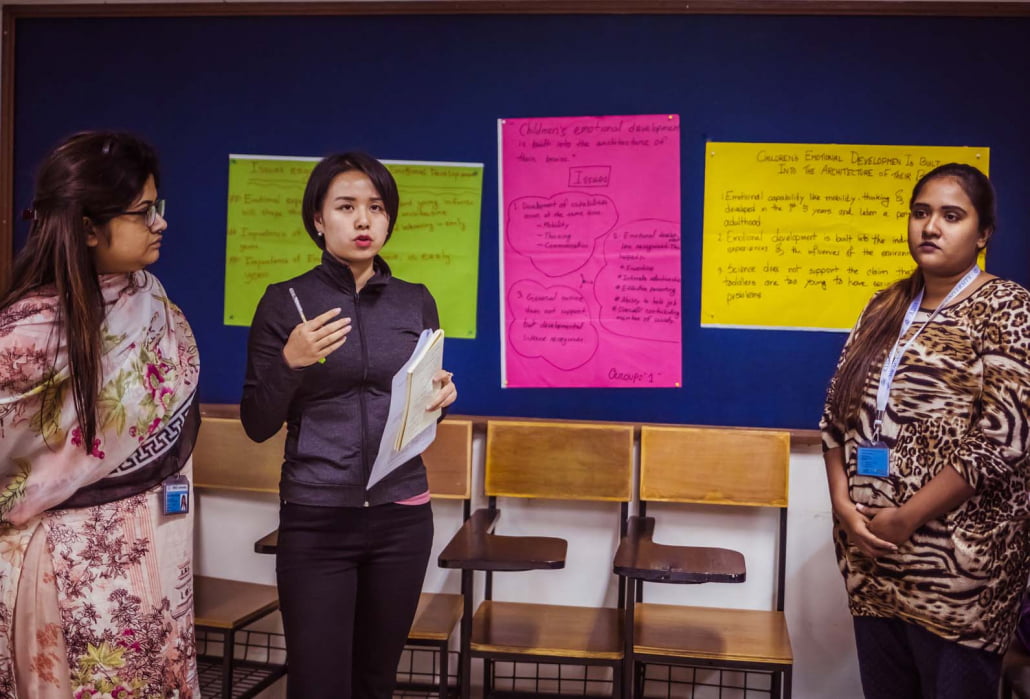
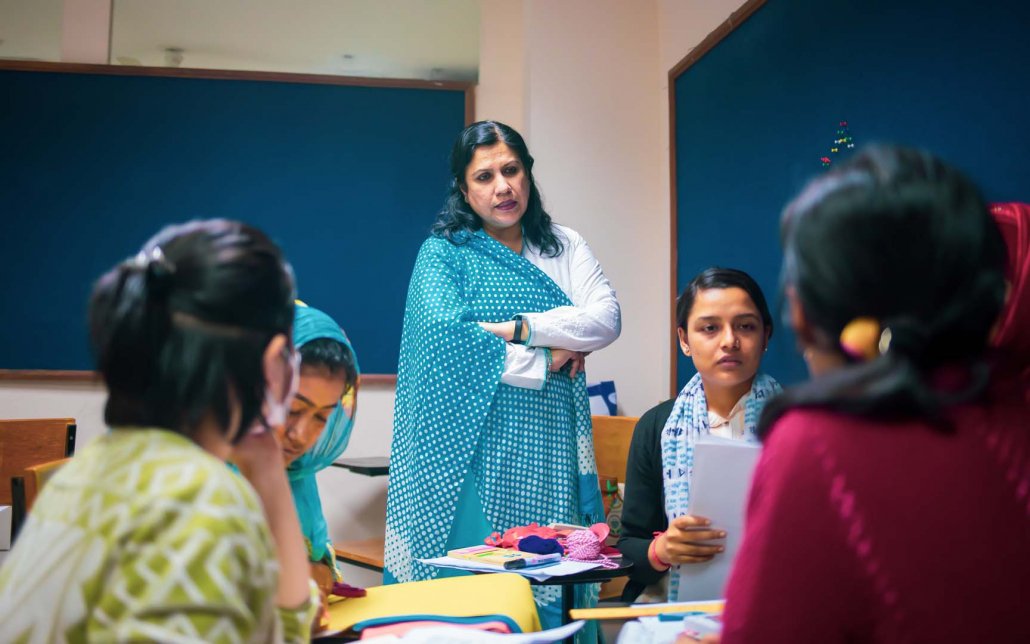
All eligible applicants, except the BracU graduates having the CGPA 3.0 or above, are required to sit for the written admission test. Admission Test will have the ‘two’ parts: 1-hr ‘written test’, and, a short ‘interview’ to identify the applicant’s proficiency level in English language. Both the ‘written test’ and the ‘interview’ will be held on the same day in a short (15/30-minute) break. Interview is, however, mandatory for all the applicants.
| Program Modality | Duration | Tuition Fee (BDT) | Breakdown |
|---|---|---|---|
| M.Sc. | 24 months | 252,500 | Admission 25,000
Application form: 1,500 Degree processing 10,000 Per Credit 6,000 |
| 12 months | |||
| PGD | 18 Months | 198,500 |
The programme graduates will be qualified for a career within the field of early childhood development and education. They can choose among various career paths such as school teaching, academic, researcher, specialized professional in government and non-government organizations, consultant, etc.
admissions@bracied.com
+8801713084299
(Sun-Thurs, 9am-6pm, excluding 1pm-2pm)
Mujahidul Islam
Administrative Coordinator, Academic Programmes
kakonmujahid@bracu.ac.bd
Md. Khabir Uddin
Senior Officer, Administration
khabir.uddin@bracu.ac.bd
Ashik Rahman
Senior Officer, Academic Coordination
ashik.rahman@bracu.ac.bd
Contact
TERMS OF USE
